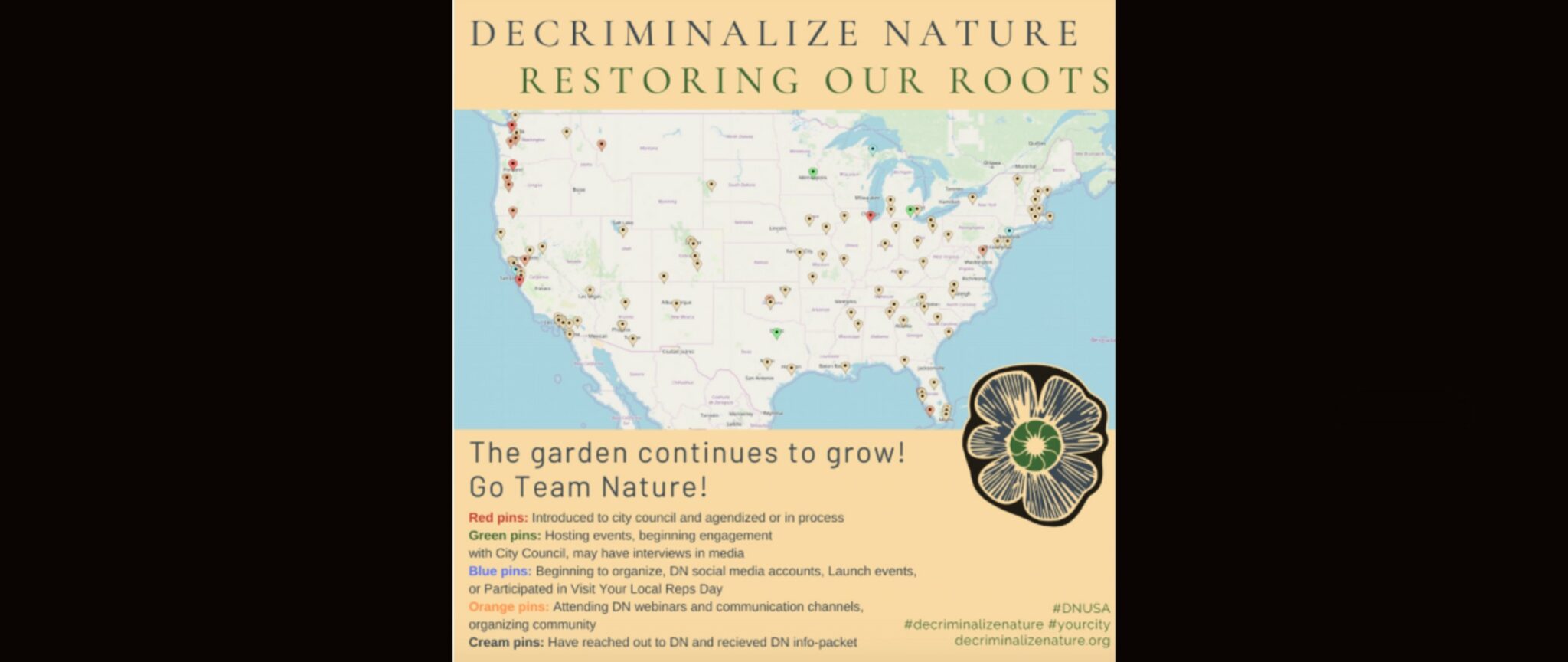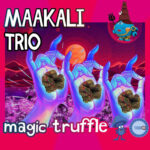Across the United States there exists a dedicated network that you need to know about. Decriminalize Nature is an organisation that both initiates, connects and supports the advocacy of psychedelic plants. They are behind the historic petitions that have taken place in cities including Oakland, Santa Cruz and Denver. So, read on to meet Decriminalize Nature: the organisation changing the US!
Who Are They?
Decriminalize Nature defines themselves as
‘…an educational campaign to inform individuals about the value of entheogenic plants and fungi and the intention to propose a resolution to decriminalize our relationship to nature.’
Chair of the board, and co-founder Carlos Plazola previously lobbied for cannabis in California. Although in many ways successful, Plazola believes that they could have gone further with the scope of their campaign. This is not a mistake he is willing to make again. Along with Larry Norris, the co-founder of Entheogenic Research Integration and Education (ERIE), he formed the nucleus of Decriminalize Nature. The simple message being that if it grows from the ground, humans should have access to it.
It is a message that encompasses both the need to access entheogens for health and ceremonial reasons, as well as confronting the current structures which keep us separate from nature, and the natural world. It wholly questions the concept that something that occurs naturally, be it animal, vegetable or mineral—can be against the law.
Inspired By A Mushroom Journey
Interestingly, it was actually a mushroom trip that made Plazola reassess his previous petitions. After reading Michael Pollan’s How To Change Your Mind, he decided to embark on his first psychedelic trip in 37 years. This ‘mushroom journey’ made him realise that previous campaigns had been stymied by fear.
Small Scale For Big Results
Additionally, a softer, more individual process was needed. Rather than the statewide legalization campaigns that characterised the cannabis movement, Decriminalize Nature aimed to focus on smaller communities. This movement works via individual chapters, independently lobbying their local councils. Thus, Decriminalize Nature hoped to get entheogens, at the very least, recategorised to the lowest law enforcement category. What this means is that they may still not be legal and regulated. However, police will follow up all other crimes before they might turn their attention to anything psychedelic-plant related. Additionally, DN requests that district attorneys terminate prosecutions for crimes involving psychedelic plants. After a year the policy will be reviewed.
Giving A Face To Campaigners
This smaller-scale method has many strengths. People can give testimony to their local councils of how entheogens have helped them. This puts a face to the activists, as well as to the council members. This opposes the anonymity of campaigner vs. government official, which is tradition. The fact that many of their citizens are willing to admit breaking the law, in tandem with the glut of recent pro-psychedelic scientific findings has encouraged an open-minded attitude on the part of council members. In fact Mayor Jason Cummings, of the recently decriminalised Santa Cruz stated;
“Given the amount of new information, in addition to the fact that the War on Drugs has proven to be ineffective, I think it’s a good time to consider this.”
It does seem in many ways a no-brainer for council members. The citizens who elected them are offering compassion-inducing evidence, and they have seen previous heavy-handed prohibitions fail.
Customising Petitions
Additionally, each chapter can customise their petition to suit their city’s needs. Although, as a rule, most follow the measures set out by the original Oakland act, there are a few diversions. For example, the Chicago chapter includes how psychedelic treatments could aid their city’s opioid crisis. The Dallas one includes cannabis as an entheogen. This personal nature is key to success at city level.

In a map recently released by Decriminalize Nature we can see that nearly 100 cities in the US are considering, or already putting into effect, the decriminalisation of entheogens. They follow preceding cities including Oakland, Denver, Santa Cruz and recently Ann Arbor.
And now, thrillingly, Decriminalize Nature are sharing the knowledge further by releasing a handbook. The handbook functions as a set of guidelines for those who want to organise their own decriminalisation petitions. It boasts 123 pages and explains the best ways they have found to accomplish their aims. Objectives, the group’s origin and their principles all feature too. Also included in this new campaigner’s bible are sample emails, fact sheets and press release templates.
In the introduction of the handbook the organisation explains;
“We stand at a historical crossroad, a key transition point in our relationship with nature and each other. Our entheogenic allies enable us to heal, understand, and mature our relationships with ourselves, each other, and the planet that birthed us and to which we belong. Join us in spreading awareness of these entheogenic plants and fungi. Join the movement to decriminalize our relationship with nature so we may shift the balance to rebuild a more cooperative, just, and caring world.”
Watch This Space…
This isn’t all however. DN have recently proposed to expand their decriminalisation success in Oakland by introducing guidelines for regulated psychedelic healing ceremonies in the city. A few years ago, this may have been unthinkable. But with the success of Decriminalize Nature one can’t help but start to believe that anything is possible. So watch this space…. We certainly will be.





